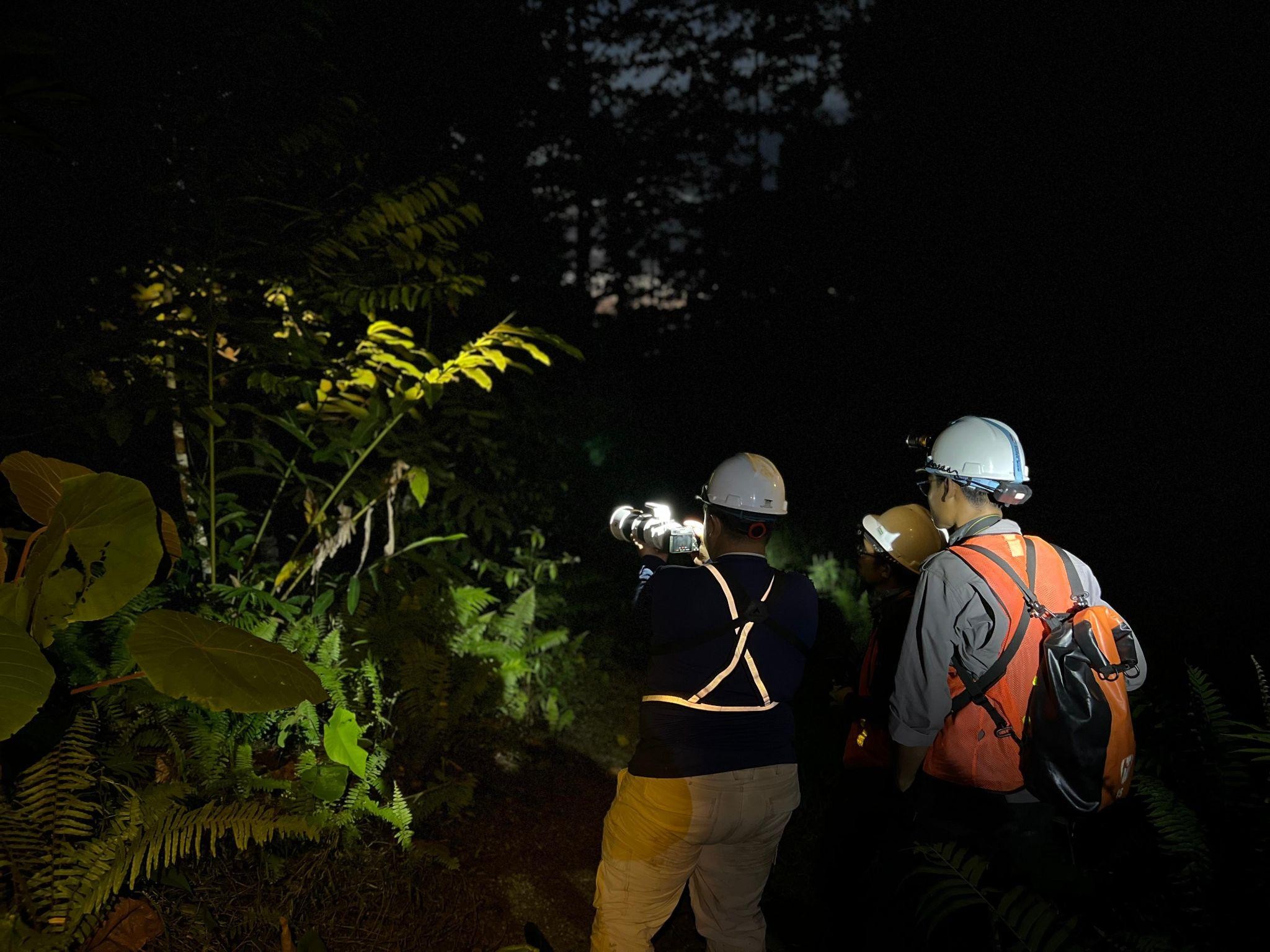


19 April 2025
Harita Nickel is stepping up its commitment to environmental stewardship, implementing a comprehensive biodiversity monitoring programme across its reclamation and revegetation sites, as well as several operational zones on Obi Island, an area recognised for its rich ecological value.
According to Muharwan Syahroni, Deputy Head of Health, Safety, and Environment (HSE) at Harita Nickel, the company conducts routine ecological surveys annually over a three-week period. The process, managed by independent third-party experts, focuses on tracking flora and fauna populations before, during, and after mining operations, including the reclamation phases.
“We conduct monitoring through independent partners to ensure objectivity. The aim is to assess the presence and condition of flora and fauna before mining begins, and to observe the recovery process following revegetation,” Syahroni explained.
Encouragingly, recent monitoring has shown signs of ecological recovery. Several native plant species have successfully re-established themselves in reclaimed areas, while sightings of local wildlife, particularly bird and reptile species, have also increased.
Notably, the populations of mammals, birds, herpetofauna, and insects are showing signs of stability. This includes species endemic to the Maluku Islands, such as the Green Flying Fox (Dobsonia viridis) and the Halmahera Cuckooshrike (Lalage aurea), both considered ecological treasures of the region.
In the insect category, researchers have identified 28 species of dragonflies from 8 families and 46 species of butterflies across 4 families. Their sustained presence is widely regarded as a strong bioindicator of environmental health and ecological integrity.
“In recent times, we’ve seen stable trends among several native species, including key endemics. Their continued presence signals that the ecological balance is being preserved,” said Syahroni.
Among the more visually striking species observed is the Black Sunbird (Cinnyris frenatus), a nectar-feeding bird commonly found among flowering trees in the revegetated zones. Its return indicates that a functioning ecosystem is gradually re-establishing itself.

Beyond the technical aspects of reclamation, Harita Nickel has also launched a company-wide environmental awareness campaign. The initiative emphasises a firm prohibition on wildlife hunting and disturbance, aimed at protecting vulnerable species and fostering long-term ecological resilience.
“We emphasise the importance of preserving the island’s biodiversity. Education around anti-poaching and environmental protection is a key part of our operations across all business units,” Syahroni added.
By integrating rigorous monitoring with on-the-ground education and habitat restoration, Harita Nickel is aiming to position itself not just as a leader in responsible nickel production, but also as a long-term steward of Obi’s ecological legacy.
Go Top